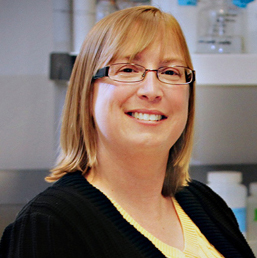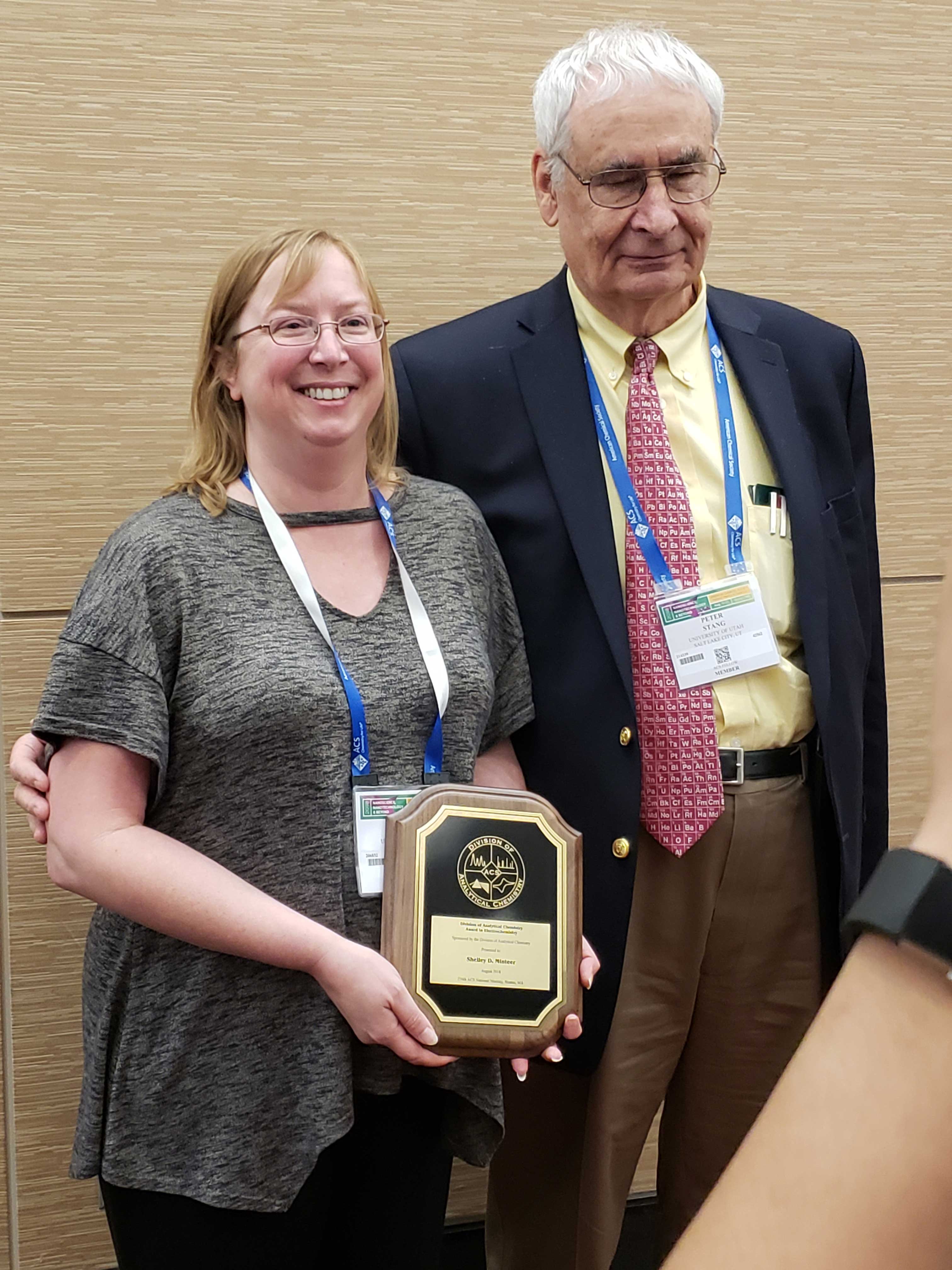Electric Achievement in Electrochemistry
 On August 21, 2018 Shelley Minteer was awarded the 2018 ACS Division of Analytical
Chemistry Award in Electrochemistry, which was given at the ACS meeting in Boston.
She is one of six awardees for the division, and is the third professor from the University
of Utah Department of Chemistry to receive this award.
On August 21, 2018 Shelley Minteer was awarded the 2018 ACS Division of Analytical
Chemistry Award in Electrochemistry, which was given at the ACS meeting in Boston.
She is one of six awardees for the division, and is the third professor from the University
of Utah Department of Chemistry to receive this award.
To read more about the division winners, click here.
"Dr. Shelley Minteer is a USTAR Professor in both the Departments of Chemistry and Materials Science and Engineering at the University of Utah. She received her PhD in Analytical Chemistry at the University of Iowa in 2000 under the direction of Professor Johna Leddy. After receiving her PhD, she spent 11 years as a faculty member in the Department of Chemistry at Saint Louis University before moving to the University of Utah in 2011. She was also a Technical Editor for the Journal of the Electrochemical Society from 2013-2016 and is now an Associate Editor for the Journal of the American Chemical Society. She has published greater than 300 publications and greater than 400 presentations at national and international conferences and universities. She has won several awards including the Luigi Galvani Prize of the Bioelectrochemical Society, the Missouri Inventor of the Year, International Society of Electrochemistry Tajima Prize, Fellow of the Electrochemical Society, and the Society of Electroanalytical Chemists’ Young Investigator Award. Her research research interests are focused on electrocatalysis and bioanalytical electrochemistry. She has expertise in biosensors, biofuel cells, and bioelectronics."
Award Presentation
Electrocatalytic cascades for energy conversion and electrosynthesis
Many organic, metallic, and biological electrocatalysts catalyze 2 or 4 electron oxidation or reduction reactions, but when using electrocatalysis for complex fuel oxidation in fuel cells or electrochemical synthesis of complex products, a cascade of catalytic moieties may be necessary. This talk will discuss the complexities of utilizing electrocatalytic cascades of bioelectrocatalysts and organic electrocatalysts, as well as hybrid catalytic cascades. The talk will discuss the importance of channeling intermediates between individual catalytic active sites and materials strategies for improving the faradaic and product efficiencies of catalytic cascades. Finally, this talk will provide a variety of examples of the use of catalytic cascades including oxidation of complex fuels (i.e. JP-8 jet fuel) and complex biofuels (i.e. glycerol, glucose, and pyruvate) in fuel cells and the electrosynthesis of complex products (i.e. ammonia from nitrogen gas and hydrocarbons from carbon dioxide).
Congratulations Shelley!
